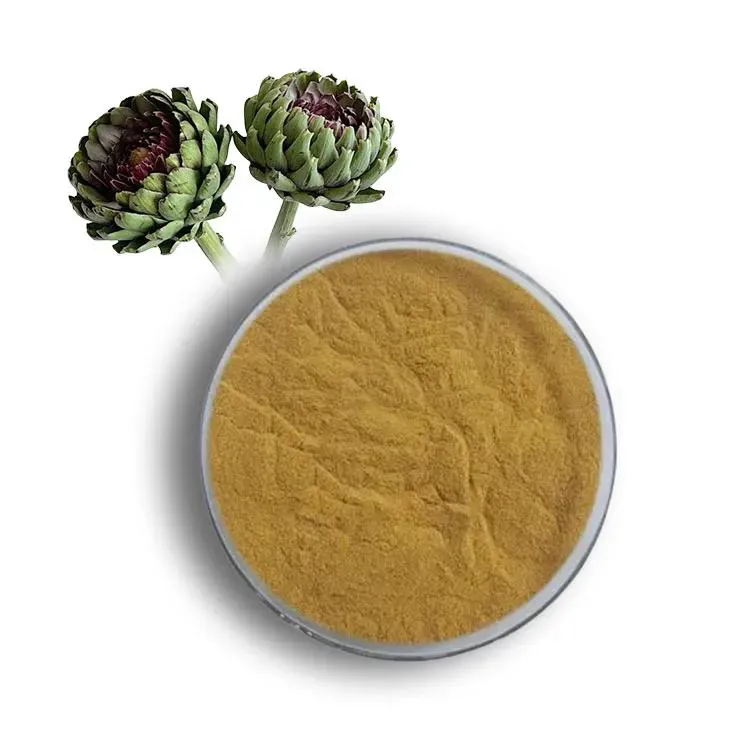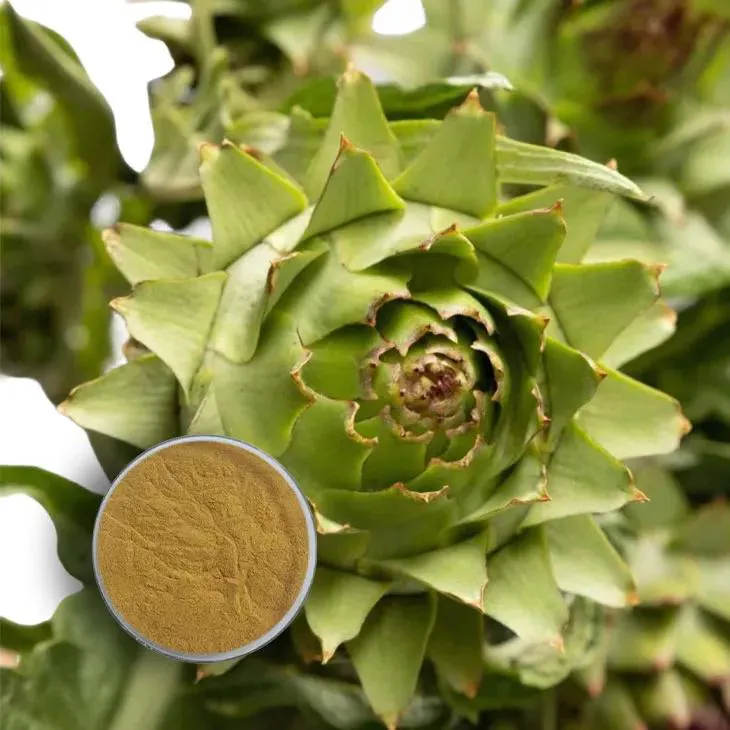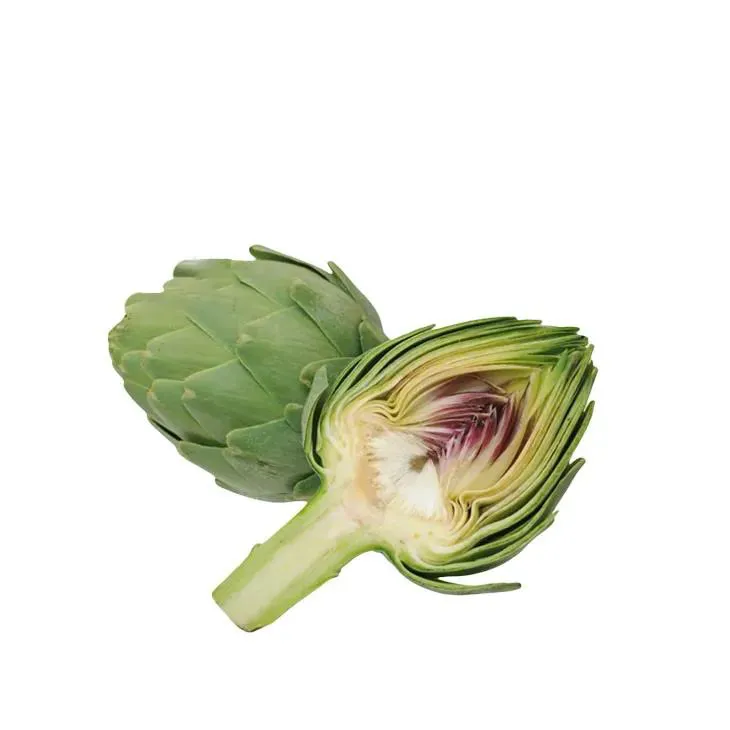- 0086-571-85302990
- sales@greenskybio.com
Does Artichoke Extract Increase Bile Production? A Comprehensive Review
2025-06-08

Artichoke, scientifically known as Cynara scolymus, is a perennial thistle belonging to the Asteraceae family. While commonly enjoyed as a nutritious vegetable, artichoke has a long history of medicinal use in traditional systems, particularly for ailments related to the digestive system and the liver. Artichoke Leaf Extract has gained popularity in modern herbal medicine for its purported hepatoprotective, lipid-lowering, and digestive-stimulating properties. A central claim surrounding this botanical supplement is its ability to stimulate bile production or secretion, a feature that underpins many of its proposed health benefits. This article provides a detailed exploration of the evidence regarding Artichoke Extract’s impact on bile production and addresses its relevance in human health.
Understanding Bile and Its Importance
Bile is a greenish-yellow fluid produced by the liver and stored in the gallbladder. Its primary function is to aid in the emulsification and absorption of dietary fats and fat-soluble vitamins in the small intestine. Efficient bile flow is essential for digestion, absorption, and the removal of certain waste products from the body, including bilirubin and excess cholesterol. Disruption to bile production or flow can cause symptoms such as indigestion, bloating, nausea, and, in severe cases, jaundice or gallstone formation. Therefore, interventions that promote healthy bile synthesis or secretion—termed choleretic (increasing bile production) or cholagogue (promoting bile flow)—have attracted significant medical interest.

Artichoke Extract: Composition and Mechanisms Relevant to Bile
Artichoke Leaf Extract is rich in bioactive compounds, including cynarin, chlorogenic acid, caffeic acid, flavonoids (such as luteolin), and sesquiterpene lactones. Cynarin, in particular, has been frequently cited as the key choleretic and hepatoprotective constituent. The mechanisms by which artichoke may influence bile dynamics include:
1. Stimulation of Hepatocyte Activity: Research suggests artichoke compounds can stimulate liver cells to increase bile acid synthesis, primarily through upregulation of associated enzymes.
2. Enhancement of Bile Flow: By improving bile acid output, Artichoke Extract may help maintain the smooth flow of bile through the biliary tract and gallbladder.
3. Antioxidant and Anti-inflammatory Effects: These properties may indirectly support bile production by reducing oxidative stress or inflammation in liver tissue.

Scientific Evidence: Does Artichoke Increase Bile?
Animal Studies
Much of the research confirming artichoke’s choleretic effect stems from animal models. Classic studies in the latter half of the 20th century and more recent experiments alike have repeatedly demonstrated that artichoke extract can significantly increase both the volume and flow of bile in rats and dogs.
- For instance, a widely cited 1977 study published in Planta Medica reported that rats given standardized artichoke extract exhibited up to a 127% increase in bile flow compared to controls. Similar results were observed with cynarin and other isolated constituents.
- In another experiment, beagle dogs displayed enhanced bile secretion after administration of isolated artichoke flavonoids.
These effects are generally attributed to direct stimulation of liver cells responsible for bile synthesis and may also involve improved contractility of the gallbladder.
Human Studies
Clinical data in humans, while robust for some digestive symptoms, is somewhat more limited when it comes to direct measurements of bile output. However, indirect evidence supports the choleretic reputation of artichoke extract:
- In a double-blind, placebo-controlled study, participants with non-specific dyspepsia reported improved digestion, less bloating, and a reduction in feelings of fullness after taking Artichoke Leaf Extract. These benefits are believed to involve enhanced bile secretion, as bile plays a key role in lipid digestion.
- Another human trial published in Phytomedicine in 2002 found that artichoke extract improved symptoms in patients with functional dyspepsia, a condition often related to bile insufficiency.
While not all studies directly measured bile volume or composition, the consistent improvement in fat-digestion-related symptoms suggests a positive effect on bile flow. Anecdotal and historical uses also align with this hypothesis.

Safety Profile and Usage Considerations
Artichoke extract is generally well tolerated in recommended doses. Adverse effects, when they occur, tend to be mild and include gastrointestinal symptoms such as flatulence or loose stools. However, artichoke extract should be used with caution—or avoided entirely—in individuals with known bile duct obstruction, active gallstones, or severe liver disease, where increased bile flow could potentially exacerbate symptoms or provoke complications.
Artichoke extract is available in various forms, such as standardized capsules, tablets, tinctures, and teas. Dosages used in studies have varied, but typical supplementation ranges include 320–640 mg of standardized extract taken one to three times daily before meals.
Potential Therapeutic Applications
The choleretic activity of artichoke extract holds promise for managing several clinical situations:
- Functional Dyspepsia: By promoting bile secretion, artichoke may alleviate symptoms such as bloating, feeling of fullness, and upper abdominal discomfort—complaints frequently linked to impaired fat digestion.
- Hypercholesterolemia: Bile synthesis is the body’s main route for eliminating cholesterol; thus, increased bile production may indirectly help lower blood cholesterol levels, a benefit observed in some studies.
- Liver Health: Enhanced bile flow can support the excretory role of the liver in detoxification.
Conclusion
Substantial preclinical and clinical evidence points toward artichoke extract’s ability to increase bile secretion, underpinning its traditional and modern use in digestive and liver health. While animal studies provide direct proof of choleretic action, human trials show symptom improvements consistent with enhanced bile flow, especially in those with dyspepsia or impaired fat digestion. When used appropriately, artichoke extract represents a safe, natural option for individuals seeking digestive support, especially as it relates to bile-related functions. However, as with all supplements, consultation with a healthcare provider is recommended for personalized advice and safety.
- ▶ Hesperidin
- ▶ Citrus Bioflavonoids
- ▶ Plant Extract
- ▶ lycopene
- ▶ Diosmin
- ▶ Grape seed extract
- ▶ Sea buckthorn Juice Powder
- ▶ Fruit Juice Powder
- ▶ Hops Extract
- ▶ Artichoke Extract
- ▶ Mushroom extract
- ▶ Astaxanthin
- ▶ Green Tea Extract
- ▶ Curcumin
- ▶ Horse Chestnut Extract
- ▶ Other Product
- ▶ Boswellia Serrata Extract
- ▶ Resveratrol
- ▶ Marigold Extract
- ▶ Grape Leaf Extract
- ▶ New Product
- ▶ Aminolevulinic acid
- ▶ Cranberry Extract
- ▶ Red Yeast Rice
- ▶ Red Wine Extract
-
Yohimbine Bark Extract
2025-06-08
-
Peppermint Oil
2025-06-08
-
Phellodendron Extract
2025-06-08
-
Hericium erinaceus extract powder
2025-06-08
-
Troxerutin
2025-06-08
-
Cactus Extract
2025-06-08
-
Camu Camu Extract
2025-06-08
-
Panax Ginseng Leaf Extract
2025-06-08
-
Purple Sweet Potato Extract
2025-06-08
-
Feverfew Extract
2025-06-08





















